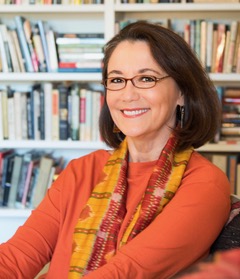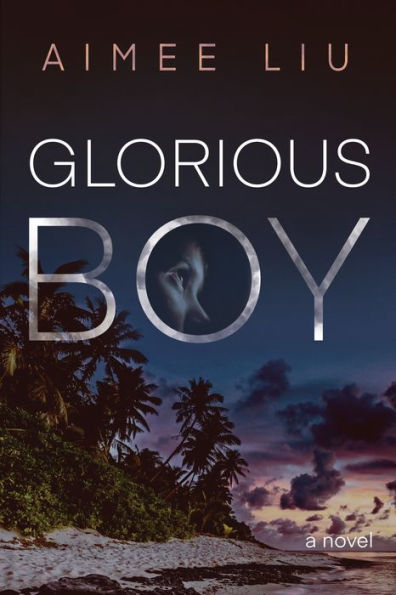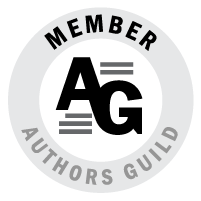Family Photos Can Change You
Lucky for me, my father was a packrat. Dad spoke little about his childhood in China during the Warlord Era, but he kept suitcases full of artifacts, most of which only surfaced after his death in 2007. Among these mementos, I discovered photographs that swept me back in time and introduced me to relatives who belonged to a lost world.
At a glance, these fading images seem like curiosities in a museum, so antiquated that they couldn’t possibly connect to life on Earth today. But to me, their faces have the haunting power of ghosts. They beckon me closer, hold me longer, and keep drawing me back. “We are your people,” they seem to say. “We are your kin, your tribe. We belong to you and you to us.”
When I study these faces, I feel the space-time continuum shrinking. Barriers of nationality disappear along with immigration quotas. Many of these photographs are stiff, posed, studio shots, yet they throb with human vitality. Arcane mysteries of foreign custom, dress, rank, and nomenclature recede into the background. What come to the fore instead are the eyes and mouths, expressions of tenderness and tenacity, ineffable tells of the unique spirits that, thanks to the magic of DNA, really do still live within me.
Connecting to vanished worlds
Like many cross-cultural families, mine is both connected and divided by race, migration, and nationality. I grew up in Connecticut. My mother, now 100, is white and from Wisconsin; her forebears were northern Europeans. I spent summers on her family’s farm and have strong personal memories of both her parents and her brother before they died. Because I knew these people, I don’t need pictures to do the heavy lifting of replacing those relationships.


Dad’s family is a different story. I knew none of his parents and grandparents, who were cut off from me by layers of revolution, cultural upheaval, war, migration, and finally the Bamboo Curtain. This makes their mystery so compelling to me that I’ve been writing about it, on and off, for nearly 30 years. I’ve barely skimmed the surface.
My father had one Chinese grandfather, dead long before Dad was born, who served China’s last imperial dynasty as viceroy of Canton in 1863. Dad also had a Chinese grandmother, Nili, the last of Viceroy Liu’s concubines. She died in 1935.
Until I discovered the photographs Dad had squirreled away, these two not-so-distant forebears seemed as inaccessible as relics locked in a vault. The 70 years that separated us might as well have been a thousand. I mean, Nili — an imperial concubine — had bound feet! It was hard to imagine a life more at odds with 21st-century America. Yet the photographs catapulted Nili and the viceroy out of their world and into mine.
I’m not talking here about nostalgia or sentimental attachment. What I recognize in these ghostly images is the truth of who we are as a family, as a line of flawed, distinct, and willful people struggling through history.
Ornate robes and sepia toning aside, I can see myself, my brother, my father, even my son in my great-grandparents’ faces. I recognize Dad’s patient resignation in Viceroy Liu’s half-smile. I detect the same stubbornness in Nili that drives our whole family. And there, below both Nili’s and the viceroy’s eyes, are the same puffy bags that my brother and I inherited from Dad.
The bridge between us
In photographs of the next generation, the backgrounds remain dated, the poses still stiff and unnatural, yet the mystical sense of connection grows.
It was my Grandfather Liu — or Papa as everyone in the family calls him — who bridged the chasm between the viceroy’s China and my father’s American life. I wish I could have met Papa, but he died in China the year I was born. Perhaps that coincidence is why I feel strangely close to him — that and the fact that he was the only other writer I know of among my kin. Ever the viceroy’s son, my grandfather wrote classical poetry, history, and memoirs. At least, he did when he wasn’t plotting revolution.
Though raised to serve China’s imperial rulers, Papa worked hard to overthrow them. Smitten with democracy, he came to San Francisco to study at the University of California, Berkeley, in 1903. My grandmother, Dolly, tutored him in English. They married just a month after the 1906 earthquake, traveling all the way to Wyoming to find a justice of the peace who would legalize their union. The Chinese Exclusion Act was then still in effect, and most western states prohibited Chinese from marrying white Americans.
My father’s parents were renegades. I based my novel Cloud Mountain on their story. I’m not sure I could have written it if I hadn’t had the pictures that show just how much I resemble them.



I’m not talking here about nostalgia or sentimental attachment. What I recognize in these ghostly images is the truth of who we are as a family, as a line of flawed, distinct, and willful people struggling through history. I know these people for better and for worse.
There in my grandmother’s distant gaze is my own. I’ve felt her contained fury more often than I like to admit, but my grandfather’s resolve keeps me going. You can see that resoluteness in the common slope of our cheeks and lips. And both my grandparents harbored a visible capacity for remoteness and withdrawal, which I have definitely inherited.
I also recognize the tension between my grandparents as a couple that is so like the persistent emotional divide between my own parents. No one said that cross-cultural marriages were easy even when powered by genuine love. I carry that tension within me, too.
Closer with age
When Papa got his wish and the Manchu dynasty toppled in 1911, he took his young family back to China. Over the next two decades, they lived in Peking and Shanghai. Papa became a politician in addition to teaching and writing. Dolly raised their four children.
Then the Japanese invaded. My father returned to California to attend the University of Southern California in 1932. Dolly and Dad’s siblings came, too, while Papa stayed in China to serve his country.
Dad returned to China in 1941 as a documentary filmmaker. He was the only member of his American family to ever see his father again. They reunited in the wartime capital of Chungking, where Papa still was working for the Nationalist government. The war against the Japanese had stripped him of almost everything he owned. I can see the grief and sorrow he carried in the photographs my father took during that visit. His burden was far greater than any that Dad would ever know.
And yet, a funny thing happened as my father grew older. The privilege of his life in America allowed him to age far more slowly than wartime China had Papa, who was only 66 at the time of their visit. But as Dad did age, the resemblance between the two men grew. Though taken decades apart, their photographs would eventually twin them.
These were two distant, reticent, and in many ways unknowable men. I never heard my grandfather’s voice, and my father rarely spoke. But as I gaze at their photographs, I experience a deep sense of empathy for them both. I do know these men. I share their spirits. And I grieve for them as I do for all the ghosts I’ve met through Dad’s family portraits.
“I see you,” I want to tell them. “I get you. What I feel for you is love.”



